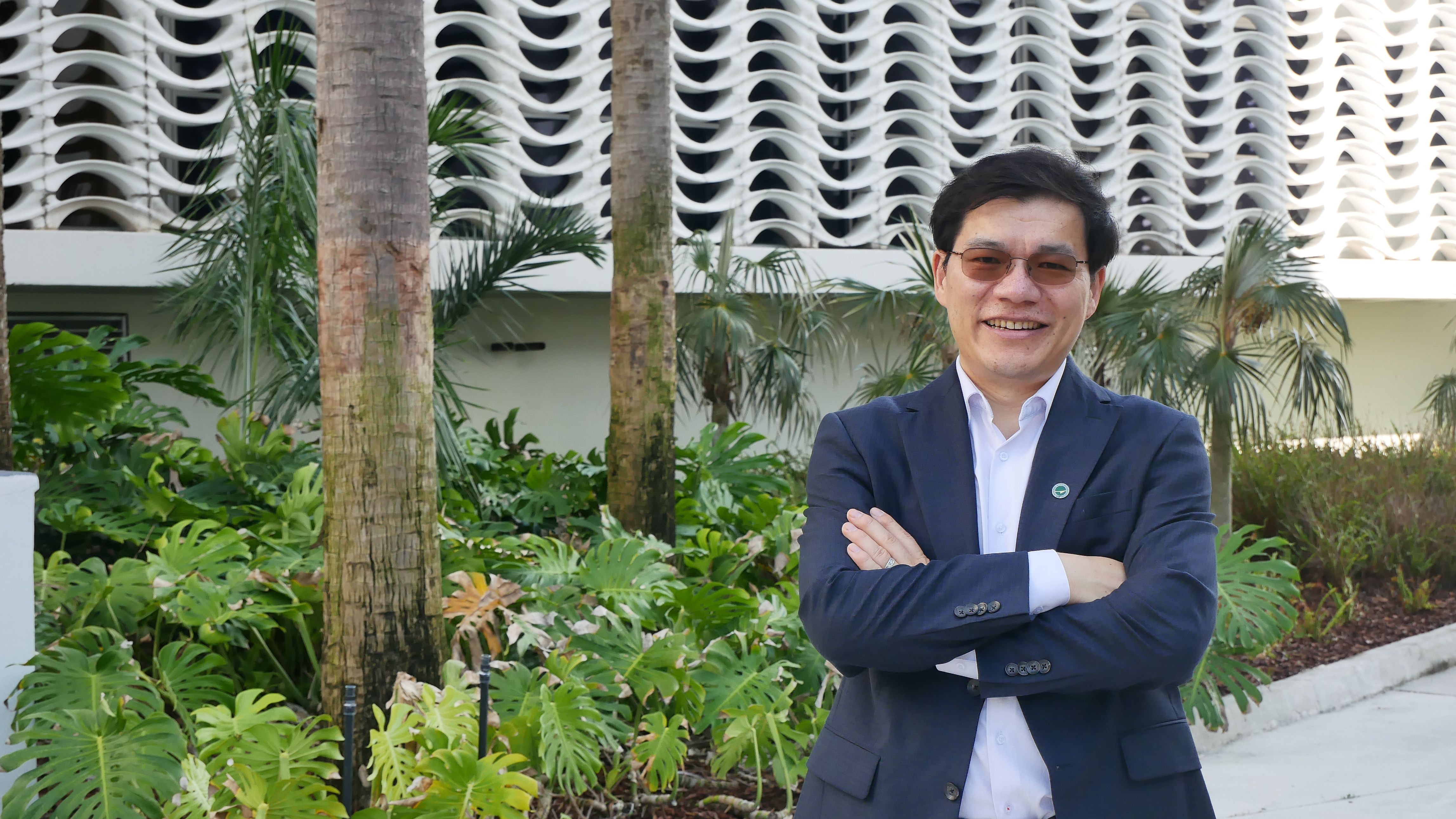A typical road is made of rocks and sand held together by petroleum to create the smooth surfaces we drive on every day. But some of these materials come at a cost: during the production and installation of asphalt, harmful emissions are released, posing health risks to workers and communities.
Now, researchers led by Xianming Shi, chair of the civil and architectural engineering department at the University of Miami College of Engineering, are exploring a cleaner, greener alternative. With a $1 million grant from the U.S. Department of Agriculture, the team is studying how agricultural waste can be converted into biochar to build roadways. The three-year project aims to revolutionize the transportation industry by reducing reliance on petroleum-based materials and providing a carbon-neutral alternative for infrastructure development.
"This is an exciting opportunity, as this is likely the very first solution to truly move asphalt pavement toward net-zero — that is, carbon neutrality," Shi said. "In addition, we can clearly observe fewer toxic fumes being emitted from asphalt pavement during production."
At the heart of the project is biochar, a CO2-negative material produced by heating organic waste, such as orchard trimmings, wheat straw, and poultry litter, in a low-oxygen environment through a process known as pyrolysis. The approach not only repurposes millions of tons of agricultural byproducts and waste generated annually on farms across the country but also turns them into a material that can sequester carbon in asphalt pavement while potentially extending the lifespan of roads.
Millions of tons of organic waste at farms are often discarded or left to decompose, releasing methane and other harmful gases into the atmosphere. By converting this waste into biochar (and bio-oil) and using high doses of reclaimed asphalt pavement, Shi and his team aim to sequester large amounts of carbon in the asphalt pavement itself. The project could also create economic opportunities for farmers and poultry producers by diverting farm waste toward better uses.
Turning Waste Into a Revenue Stream
The research team is multidisciplinary, including three economists to analyze how the technology can help local communities.
"This project goes beyond engineers working together to decarbonize asphalt," Shi said. "This is a bold approach that will essentially create a new market and green jobs; that is why we also consider the socioeconomic dimensions of this innovation."
Shi, along with researchers from California State University-Chico, Washington State University, and the University of Georgia, also plans to partner with two tribal communities to test the biochar-enhanced asphalt on local paving projects, showcasing the material's real-world potential.
A Vision for Climate-Driven Engineering
Shi's leadership has brought a renewed focus on environmental sustainability, with infrastructure decarbonization and coastal resilience at the core of the department's mission.
"We are transforming into a climate infrastructure engineering department," Shi said. "We have faculty doing exciting research on the decarbonization of the built environment—whether it's roads, bridges, tunnels, ports, or buildings—especially looking at how we can reduce their carbon footprint. Being in Miami, it makes sense to also focus on coastal resilience, with internationally known innovations like the SEAHIVE for coastal defense."







